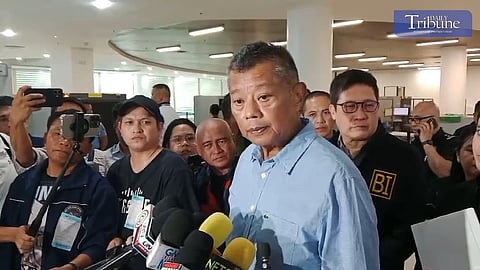
- NEWS
- the EDIT
- COMMENTARY
- BUSINESS
- LIFE
- SHOW
- ACTION
- GLOBAL GOALS
- SNAPS
- DYARYO TIRADA
- MORE

Justice Secretary Jesus Crispin Remulla on Thursday said the government is crafting a complex case against a powerful group that might have orchestrated a wave of killings linked to illegal e-sabong—warning that some public officials and police officers may be complicit.
Remulla said investigators are working closely with a key witness who recently surfaced and provided a sworn statement naming the alleged mastermind of the syndicate.
The DOJ chief said the syndicate leader boasted of being able to beat any case filed against him—even before the Supreme Court.
“He reportedly said he could handle the case, even at the Supreme Court. That’s why we plan to talk to Chief Justice [Alexander] Gesmundo about this,” Remulla said.
Asked what exactly would be discussed with the Chief Justice, Remulla replied: “We’ll tell him what’s hindering our progress. The syndicate has overwhelming financial resources. The money they’re working with is staggering.”
Remulla said he could not yet disclose the identity of the syndicate head, only describing him as a well-known personality. “We’re still building the case,” he added.
He also raised concerns over the extent of the group’s influence, saying there are indications it may have a separate network of police officers working in its favor.
Remulla said that in parts of Luzon, there are reports that local government units (LGUs) are unable to operate their own e-sabong ventures unless they secure approval from certain powerful individuals. “I don’t know about that,” he said cautiously. “But this group does appear to be very powerful.”
The Justice Secretary said despite mounting suspicion of broader institutional involvement, they hope that local officials and courts are not entangled. “Hopefully not. We're hoping they don't get involved,” he said.
Remulla’s pronouncements come as investigations expand into the disappearance of dozens of sabungeros—cases authorities now believe may be part of a wider pattern of targeted killings carried out by criminal syndicates behind the illegal gambling trade.
